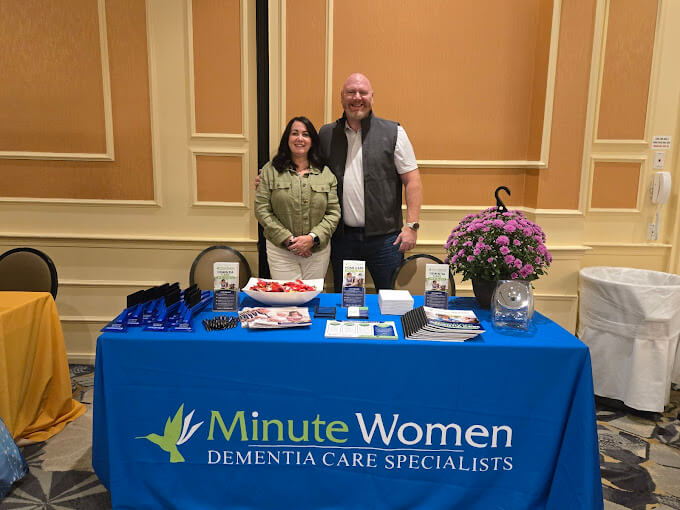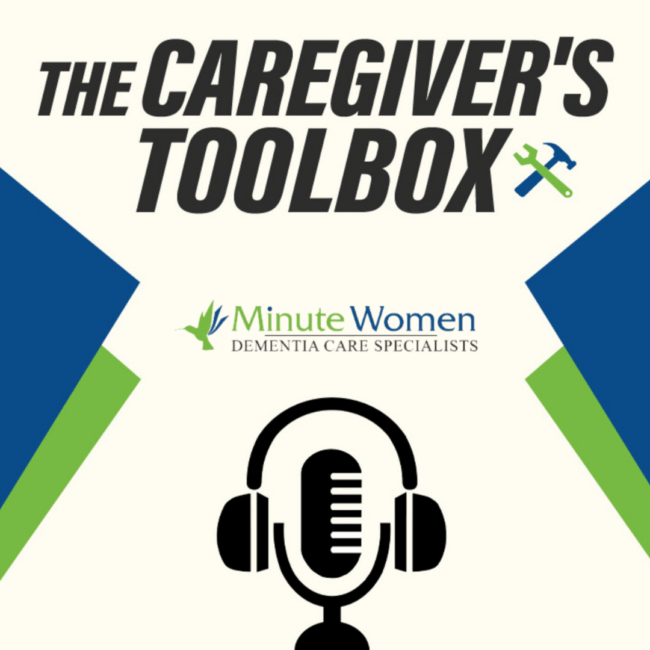How to Spot the Warning Signs of Dementia
More than 55 million people worldwide live with dementia or signs of dementia. Experts expect this number to grow yearly. In short, as much as you may hope that your aging parent does not develop dementia, there is always a risk.
The first step in dementia home care for a loved one is identifying the early warning signs. Many health conditions causing dementia are progressive, so the sooner you notice the symptoms, the sooner you can enquire about a live-in caregiver and dementia care options for your loved one.
What We’ll Cover:
- Types of dementia
- Dementia risk factors
- Short-term memory loss
- Communication loss (aphasia)
- Difficulty with daily tasks
- Mood swings
- Apathy
- Confusion
- Repetition
- Loss of sense of direction
- Poor judgment
- Key takeaways

Types of Dementia
Dementia is a term used to describe cases of severe changes in the brain causing memory loss. In addition, the brain changes that occur with dementia make it difficult for affected individuals to perform daily activities, and they may also experience changes in their personality or behavior.
However, different types of dementia vary based on the cause of the brain damage. These ten types of dementia support include:
- Alzheimer’s Disease Care
- Vascular Dementia Care
- Lewy Body Dementia Care
- Creutzfeldt-Jakob Disease Care
- Parkinson’s Disease Care
- Wernicke-Korsakoff Syndrome Care
- Mixed Dementia Care
- Normal Pressure Hydrocephalus Care
- Huntington’s Disease Care
- Frontotemporal Dementia Care
Most cases of dementia result from a disease, and no amount of treatment and medical attention can reverse their progression. This treatment differs from stroke care, which involves more physical rehabilitation. Additionally, signs of dementia typically follow similar stages, although patterns and progressions can vary by type of dementia.
The two most common types of dementia include Alzheimer’s Disease and Vascular Dementia.
Alzheimer’s Disease
The most common cause of dementia, accounting for 60-80% of all cases, is Alzheimer’s disease. Brain cell death is the primary characterization of Alzheimer’s disease and is what contributes to dementia. It is a progressive disease that worsens with time, resulting in worsening symptoms.
Alzheimer’s disease occurs in seven stages, and while symptoms can begin appearing in stage 2, the symptoms that are recognizable as dementia do not begin until stage 4.
Vascular Dementia
Second to Alzheimer’s disease is vascular dementia. With this type of dementia, brain damage occurs due to a lack of blood flow. Some potential causes of this interference in blood flow include diabetes, atherosclerotic disease, high blood pressure, or strokes. Preventative stroke care can mitigate this risk.
Depending on the cause of brain damage, symptoms of vascular dementia may appear slowly or suddenly.
Dementia treatment services can restore dignity, function, and happiness.
Dementia Risk Factors
As expected, one of the most significant risk factors for dementia is being diagnosed with a disease that contributes to brain cell death and has a high likelihood of dementia as a symptom, such as Alzheimer’s or atherosclerotic disease. People suffering from these diseases often rely on home care assistance in addition to treatment.
Other risk factors for dementia include:
- ethnicity
- gender
- other health conditions (e.g., cardiovascular disease, hearing loss, traumatic brain injury, depression)
- exposure to air pollution
- lifestyle (e.g., smoking, excessive alcohol use)
The Top Risk Factor for Dementia
Age is one of the most important signs of dementia. While younger adults between the ages of 40 and 50 can develop Alzheimer’s, it is much less common, with early-onset Alzheimer’s accounting for only 5% of all cases of Alzheimer’s.
With increasing age, other factors that can increase the risk of dementia are also more likely, with some examples including:
- damaged or blocked brain blood vessels
- high blood pressure
- less activity in brain cells
- greater risk of stroke
- slower recovery from injuries
As for genetics, there are specific genes that children can inherit from their parents, increasing their chance of dementia. The first type of gene is familial, which leads to dementia if inherited. A child with a parent with a familial gene has a 1 in 2 chance of inheriting it and developing signs of dementia, often in their 50s or 60s. However, familial genes are very rare for most dementia types.
The other type of gene is a risk gene, which increases someone’s chances of developing dementia but does not guarantee that someone will have dementia. At this time, scientists have discovered over 20 risk genes, but most of them only slightly increase the risk of dementia.

9 Warning Signs of Dementia
Below are 9 warning signs of dementia to watch for in your aging parent. Detecting these early signs is crucial for managing the condition effectively and can greatly benefit from specialized dementia home care. Early identification allows for the timely implementation of support strategies and interventions that can significantly improve quality of life.
If you notice any of these symptoms, it is highly advisable to consider arranging at-home care with a live-in caregiver who is trained in dementia care. Live-in caregivers can provide daily assistance and continuous monitoring, which not only helps in managing the symptoms more effectively but also ensures safety and support tailored to the evolving needs of someone experiencing dementia.
1) Short-Term Memory Loss
Typically, one of the first symptoms of dementia that develops is slight short-term memory loss. In many cases, though, especially at first, these changes are very subtle. For example, a loved one may be able to recount events from years or even decades ago but struggle to remember where they put down an item.
Memory loss, to some extent, is typical with age, but the memory loss experienced due to dementia is more severe and more significantly impacts someone’s life. For example, a loved one with dementia may repeatedly forget important dates or events or ask the same question. Another one of the signs of dementia is a new reliance on memory aides, such as reminder notes or a live-in caregiver.
2) Communication Loss (Aphasia)
A common early warning sign of dementia is difficulty conveying thoughts. This sign may manifest as a loved one who struggles to find the correct word to express their thinking, or they may find it challenging to explain their thoughts clearly. Individuals with dementia often experience aphasia, which affects their ability to communicate effectively. They might substitute words or use incorrect terms, which can lead to misunderstandings or confusion.
In more advanced cases, conversations may become frustrating for both the person with dementia and their conversational partner as attempts to communicate lead to nowhere. Additionally, those with dementia may stop in the middle of a sentence, feeling overwhelmed or unsure of how to proceed with their thought process. This disruption can significantly impact their social interactions. Over time, aphasia contributes to a gradual withdrawal from conversations and social activities, further isolating victims from family and friends.
Find around-the-clock support for your elderly loved one today.
3) Difficulty With Daily Tasks
While mistakes are natural, those with dementia may begin experiencing more difficulty in completing regular, everyday tasks without home care assistance. These tasks might include preparing food or brushing their teeth. Another warning sign of dementia is that these tasks take much longer to complete and require greater concentration.
4) Mood Swings
One symptom that can be difficult for those with dementia to notice is mood changes or mood swings. It’s easier for those around them, such as family or a live-in caregiver, to pick up these changes.
Depression is one of the more common mood changes, especially in the early stages of dementia. However, those with dementia may also seem more anxious or fearful than they used to be, and small changes in a daily routine may cause them to get easily upset.
5) Apathy
Those in the early stages of dementia may develop apathy or lack of interest. This change can present as someone losing interest in the activities or hobbies they once enjoyed, or they may isolate themselves more often due to a lack of desire to go out and have fun.
Dementia can also cause someone to lose interest in spending time with their family and friends, and when they spend time with their loved ones, they may appear emotionally flat.
6) Confusion
Someone who is beginning to suffer from dementia may start displaying increased confusion. This distress can include forgetting the day or month or where they are. A loved one may continually misplace their car keys or struggle to remember someone they just met. This symptom often ties into memory loss, as confusion stems from the inability to remember information.
Our live-in caregivers can provide you with peace of mind.
7) Repetition
Because of the memory loss that those with dementia suffer, they commonly begin repeating things repeatedly. For example, they may ask the same question repeatedly or tell the same story multiple times. A loved one may also forget the activities of daily living that they have already completed, causing them to repeat them.
8) Loss of Sense of Direction
When dementia begins to affect someone, they often experience a decline in their sense of direction. For example, they can struggle to get to a place they have been to many times and used to have no trouble finding. They may also struggle with recognizing landmarks that used to be familiar.
9) Poor Judgment
As cognitive decline progresses, those affected by dementia can lose the ability to make good decisions. This decline may mean they cannot recognize a dangerous situation like a busy street. They may then try to cross the street before it is safe for them to do so, which can cause harm not only to themselves but those around them as well.
The poor judgment that results from dementia can also appear as inappropriate clothing for the weather. For instance, a loved one may wear shorts and sandals outside in the snow.
Financial struggles are another common identifier of future dementia. For example, an individual who has been characteristically careful with their money may begin giving it away.

Navigating Healthcare Decisions for Parents with Dementia
When your parent starts showing signs of dementia, navigating the subsequent healthcare decisions can be as challenging as it is essential. The journey begins with understanding and accepting the change in your role: from being a cared-for child to a caregiver and decision-maker for your parent. At Minute Women Home Care, we recognize the delicate balance required in this transition and offer guidance to ease the dementia home care transition.
First and foremost, it’s crucial to get a comprehensive evaluation from healthcare professionals. While general practitioners are a good starting point, consulting specialists such as geriatricians or neurologists can provide a more in-depth understanding of your parent’s condition. These specialists can assess the severity of the dementia and help map out a care plan that aligns with the progression of the disease. Early diagnosis not only opens the door to potential treatments that might slow the progression but also allows your parent to have a voice in their future care decisions.
Open communication is key. Discussing healthcare and future living arrangements can be tough, but it’s important to involve your parent in these conversations as much as possible. This respect for their input can make transitions smoother and help preserve their dignity. During discussions, focus on listening to their concerns and wishes and provide reassurance that you’re there to support them, not take control away.
Legal preparations are another critical aspect. Ensure that all necessary legal documents, such as power of attorney and healthcare directives, are in place. These documents are essential for making informed decisions regarding their health and financial matters when they are no longer able to do so. It’s a prudent step to take these legal actions while your parent can still express their wishes clearly.
Key Takeaways
Dementia is a symptom characterized by memory loss and confusion resulting from damage to brain cells. If the condition causing the brain damage is progressive, the dementia symptoms that result also worsen.
There are risk factors for dementia, such as age, cognitive reserve, and lifestyle choices. One of the most important risk factors is the presence of other health conditions, with the most common cause of dementia (accounting for 60-80% of all cases) being Alzheimer’s.
Those with aging loved ones must be aware of the warning signs of dementia to keep your loved one safe. Many of these symptoms can worsen and potentially result in your loved one becoming injured. Look into arranging dementia home care for your parent or loved one for reliable supervision.
If you have questions about taking care of a senior, contact us today!
About Us
Minute Women is a premium, non-medical, in-home dementia care service provider. We assist our clients with activities of daily living so they can live at home with dignity and respect. We also support families in their mission to age in place rather than transition to a nursing facility.
Connect With Us

Subscribe to The Caregiver’s Toolbox Podcast


